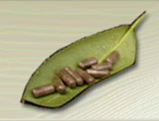 Loading... Please wait...
Loading... Please wait...Save 20% Storewide
Discount At Check Out
Indian History and Ayurveda
Posted on 1st Aug 2014
Sanskrit elegantly combines “Ayu,” meaning life and “Veda,” meaning wisdom, to create the word Ayurveda. This ancient study of medicine, prevalent in India for thousands of years before the first century, descended directly from the Vedas. The Vedas -Rigveda, Samveda, Atharvaveda, Yejurveda – are Hindu holy books expounding on a variety of subjects including legendary creation stories, the Hindu deities, teachings of the saints and worldly knowledge for living a happy and healthy life.
Atharvaveda, consisting of 114 hymns, is an “Upveda” or a sub- section of Atharvaveda and is further classified into 8 different subjects – Surgery, Gerontology, Toxicology, ENT, Psychology, Pediatrics, Internal Medicine and Aphrodisiac Remedies.
Lord Dhanvantari, the God of Ayurveda, is considered by some to be a physician to other Indian Gods and Goddesses! All the practitioners of Ayurveda worship Him and seek His blessings before starting their medical treatments.
Charaka (known as the Father of Medicine), Sushruta (known as the Father of Surgery) and Vagbhata, all students of Ayurveda, promoted this knowledge to new horizons during their lifetimes. Their medical scriptures are known as Charaka Samhita, Sushruta Samhita and Ashtanga Hridaya. The period from 200 BCE to 400 CE is widely considered the Golden Era of Ayurveda.
Arabic and Persian translations of these scriptures show adherents following and propagating Ayurveda across the world. Charaka Samhita greatly influenced Islamic scholar Ali Ibn Rabban Al Tabari, who in turn, wrote the first medical encyclopedia. Lord Buddha further spread the knowledge of Ayurveda in eastern Asian countries like China, Sri Lanka, Korea and Tibet.
However, Ayurveda suffered alongside the rest of India’s cultural heritage during the Colonial Era when India was ruled by the British. After India declared her independence in 1947, the Indian people resurrected the Ayurvedic Institutes to teach the layman. Many people have returned to the Ayurvedic focus on prevention instead of modern medicine’s aggressive treatments.
Today, modern practitioners employ Ayurveda in their practice, and the power of yoga and meditation are now widely accepted and practiced all over the world.















